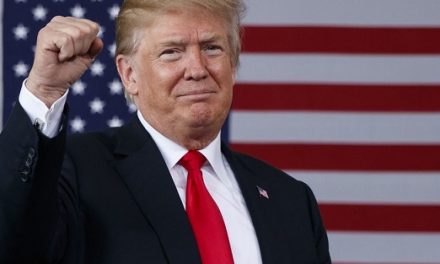
All nations in southern Africa need to take note of South Africa’s State of the Nation address

South Africa’s annual State of the Nation address has become a bigger spectacle than the Durban July. Apart from the sovereign pomp and splendour one expects on that day, it has become a fashion showcase for politicians, celebrities, rising stars, social leaders, and basically everybody who is or wants to be noticed in the busy spectrum of the rainbow that is South Africa.
Picking through the voluminous media coverage, it becomes obvious that this event draws attention far beyond the immediate political circles for which it is intended. It is truly a national event, bringing that nation together, even if only for one day.
Last week’s State of the Nation address by the South African president, Mr Cyril Ramaphosa failed to make any impression in the market but it did ruffle a few feathers. Despite Mr Ramaphosa’s best efforts, the Rand hit a four-month low a day after the address, and the JSE did not jump out of its rut by some miracle. In a sense, everything just carried on as before.
With the Namibian State of the Nation address only set for later in March, according to my information only after the tabling of the budget, the South African version needs a bit of scrutiny to see in what ways will we be affected, or whether we can borrow a snippet or two from our neighbours.
But as with all important political statements, especially those with the power to move markets, ultimately it revolves about what the SA President said, and not how he said it, or how smartly the crowd dressed. Content is the final consideration.
South Africa are beset by problems very similar to ours only larger by an order of magnitude. We are also connected to its people through history and by the overpowering dominance of the South African economy in both the regional and the continental context. For instance, for those who do not know, the South African Rand is legal tender in Namibia but the Namibia Dollar does not enjoy the same privilege in South Africa. In fact, I will not be amazed if the vast majority of South African does not have the foggiest idea what our currency is called, or that the two, the Rand and the Dollar are intricately linked through the so-called Common Monetary Area agreement.
The long and the short is that what happens in the South African economy, has a direct and immediate impact on us, so it is in our own interest to take note when their president makes statements that impact the entire region. So it was with the State of the Nation address.
Gloating a little, Mr Ramaphosa at one point referred to the desirable outcomes of their investment conference. “To prove that our investment conference was not just a talk shop where empty promises were made, as we speak, projects to the value of R187 billion are being implemented, and projects worth another R26 billion are in the pre-implementation phase,’ he said leading me to wonder how much of our own investment conference has turned into tangible investments?
On encouraging and promoting foreign investment, the South African President said his office has established a special team among a number of government agencies to fish out all obstacles and barriers, be they political, legal, regulatory or administrative, to re-evaluate those issues that frustrate investors. We can certainly take a page from that book seeing we are so fond of over-regulating everybody and every institution that is supposed to make the economy grow.
“This is an important aspect of our work to improve the ease of doing business in South Africa, which is essential to attracting investment,” said Mr Ramaphosa, revealing at the same time that they have set themselves the three-year target to be counted among the top 50 nations in the World Bank’s annual Doing Business Report.
The African continent also features high on the SA government’s list of priorities, not so much as a venue of investment for South African companies but rather in the sense that the latter serve as conduits to channel the massive investments envisaged for the future development of Africa.
I think that approach in particular, demonstrates just how far advanced South Africa is relative to the rest of the continent. Rather that thinking of themselves only as recipients of foreign investment, they have already made the mental leap, realising there is just as much opportunity in facilitating investment beyond their borders. In this regard, they see the African Continental Free Trade Area as a major incentive for foreign investors.
Mr Ramaphosa extensively covered many aspects and topics that are more of a domestic nature and do not concern us that much, but to my delight, he also signalled his intention to unbundle Eskom, much like we have done with NamPower, for greater efficiency and transparency. Although he did not use these exact words, I came under the impression the South African Government has finally come to the conclusion that Eskom must be saved from itself, in the process not only safe-guarding South Africa’s own energy, but also countries like Namibia, Botswana and eSwathini, all uncomfortably dependent on electricity generated in South Africa.
As for a local perspective, I am anxiously waiting for the Namibian State of the Nation address so that I can regard myself an informed individual on Harambee, foreign investment, the Namibian House, and every bit of hot air rhetoric we are fed every year. After all, this is an election year and it remains to be seen how long an unsuspecting electorate can be fed vague promises seeing that there is no money left to paper over the gross display of pervasive incompetence.











































